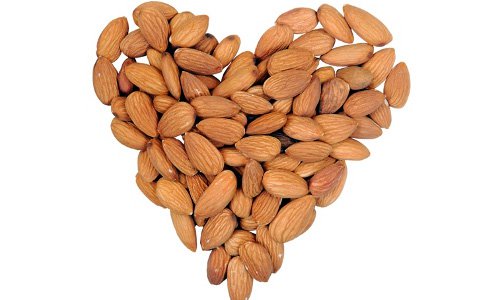Almonds: a good, healthy and rich in properties food. But how many do you need to eat? And what happens to the body if you get the right amount of almonds every day?
Almonds, a good, healthy food rich in properties. But how many should you eat? E what happens to the body if you take the right amount of almonds every day?
Le almonds, like many other types of dried fruit, are rich in vitamins and minerals useful for our body. They therefore provide good energy, contain vegetable proteins and fibers that help the well-being of the intestine. Furthermore, being rich in magnesium they also help the nervous system in case of stress or fatigue, while the large presence of calcium is very good for the bones which are strengthened by a constant consumption of these fruits.
Our skin will also benefit from the intake of almonds, thanks to the presence of vitamin E and other antioxidant substances, it will be softer and younger.
Index
Nutritional values of almonds
Almonds are a small concentrate of nutrients. A portion of about 30 g contains:
- Fiber: 3,5 grams
- Protein: 6 grams
- Fat: 14 grams (of which 9 monounsaturated)
- Carbohydrates: 2,5 grams (digestible)
- Vitamin E: 37% of the RDI
- Manganese: 32% of the RDI
- Magnesium: 20% of the RDI
They also contain a fair amount of copper, vitamin B2 (riboflavin) and phosphorus and phytic acid, a substance that binds some minerals and prevents them from being absorbed.
This small handful provides around 160 calories, but our body can only absorb 10-15% because some of the fat is inaccessible to digestive enzymes, as some research shows (Here and here)
Benefits of almonds and what happens to the body
There are several researches that confirm the many benefits of almonds which, if eaten regularly, can really represent a precious ally for our health. In particular, a handful of almonds a day:
- Protects cells from oxidative damage, because they are rich in antioxidants. In particular, it is the brown layer of the skin that contains the greatest amount of antioxidants able to fight the oxidative stress of the cells. For this reason, blanched or peeled almonds are not the best choice from a health standpoint. One study found that eating almonds with main meals greatly reduced some markers of oxidative damage.
- He has a bad glycemia. You almonds are the perfect snack for people with diabetes and to prevent this disease, thanks to the high percentage of magnesium they contain and the low carbohydrate content
- Lower blood pressure. Thanks to their high magnesium content, almonds are also excellent for people with hypertension
- It reduces bad cholesterol Those who consume them regularly have been found to have lower cholesterol levels and better circulation. Studies have shown that almonds actually lower LDL: A 16-week analysis of 65 people with prediabetes found that a diet that provides 20% calories from almonds lowered LDL cholesterol levels by an average of 12,4. 28 mg / dl (XNUMX).
- Improve skin health and of the heart thanks to the high content of vitamin E (almonds are among the best sources in the world) which helps maintain skin elasticity, but, as several studies show, it also reduces the risk of heart disease. In addition, almonds are rich in Omega 3, essential fatty acids that are precious for heart health and more.
- Reduces the sense of hunger. Almonds are low in carbohydrates and high in protein and fiber, both of which are known to increase satiety. A recent study also showed that a daily serving of almonds significantly reduced hunger and the desire to eat
- Helps to lose weight. Almonds contain many nutrients that our body struggles to break down and digest, managing to absorb only 10-15% of their calories. Additionally, some research suggests that eating nuts, including almonds, can boost metabolism and, due to their satiating properties, when added to an effective weight loss diet can seriously help you lose weight.
Among other things, a study a few years ago noted how regularly eating dried fruit, including almonds, helps to extend life by keeping away diseases such as diabetes, cancer and cardiovascular problems.

How many to eat per day
The quantity of almonds and more generally of dried fruit per day not to be exceeded is 30-35 grams which correspond to approx 15-20 almonds (depends on the size). Going beyond these doses means that you are adding too many calories to your body. Better, when possible, consume them with the cuticle since many antioxidants appear to be contained in the outer part.
These are the quantities that have shown the greatest benefits in various studies carried out on dried fruit, in particular aimed at evaluating reduction of cholesterol and triglycerides in patients with hypertension or with metabolic syndrome.
How to include them in our daily diet
Almonds are a excellent "hunger breaker", ideal therefore to consume them as they are in mid-morning or mid-afternoon, instead of fresh fruit or other snacks. Other ways to include them in your daily diet are for example to grate them very finely and use them as a condiment for first courses instead of Parmesan, perhaps combined with a little yeast flakes to create what is called the "veg. parmesan".
Almonds are excellent then to prepare homemade cakes and biscuits, for this purpose you can also use ready-made almond flour perfect for example to make a gluten-free shortcrust pastry, therefore also suitable for celiacs.

A recipe based on this dried fruit is then the almond butter which can replace the traditional one of animal origin in the preparation of sweets and biscuits, or to whip risottos.
Lovers of Sicilian cuisine will certainly appreciate the products made with almond paste. Desserts made with almond paste are especially typical of the Catania and Agrigento area where these fruits are produced in large quantities. Of course it must be said that almond paste has the disadvantage of being very rich in sugars and therefore of at least partially breaking down the advantages offered by the presence of dried fruit.
As for the drinks, however, few do not appreciate the sweet and full-bodied flavor of almond milk, which can be easily prepared at home starting from dried fruit. HERE a recipe that you can follow. Then you just have to enjoy all the benefits of almonds always keeping them available at your home for when you want them most!Controindicazioni
Although dried fruit may seem harmless at first glance, we must not forget that even in this case there are contraindications and cases in which it is not recommended. For example, if you suffer from stones, whether they are kidney or biliary, it is necessary to consume almonds, nuts and other foods rich in oxalates in moderation, which can aggravate the situation. Even if you suffer from Herpes, almonds are not recommended given the presence of the amino acid arginine which could promote the replication of the virus.
On almonds you might also be interested in:
- 10 reasons to eat a few almonds every day
- Almonds, the best allies against diabetes and bad cholesterol
- Green almonds: all the benefits for health and beauty


























